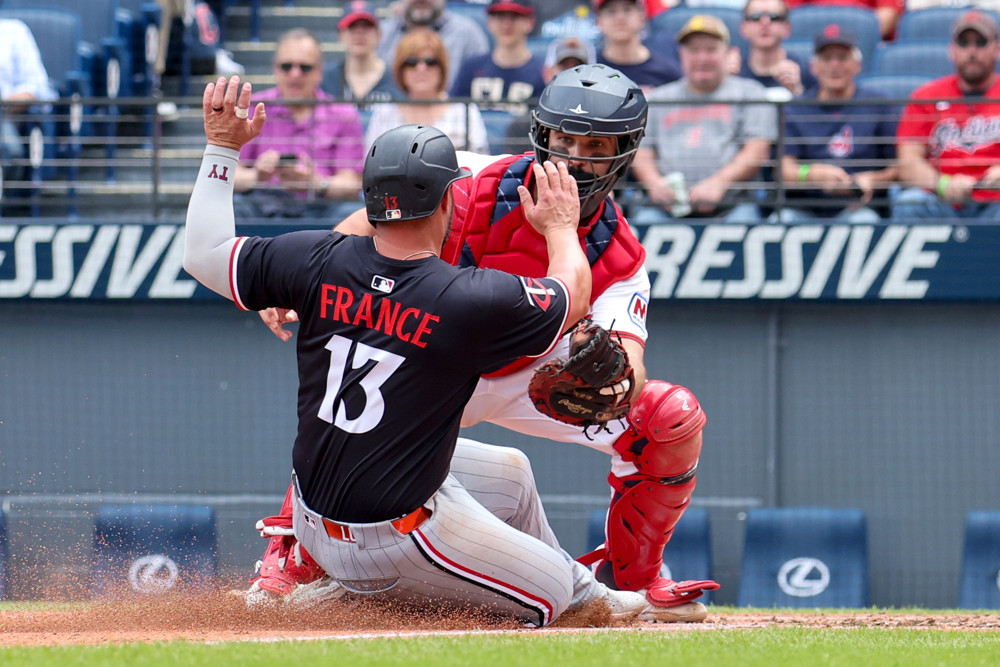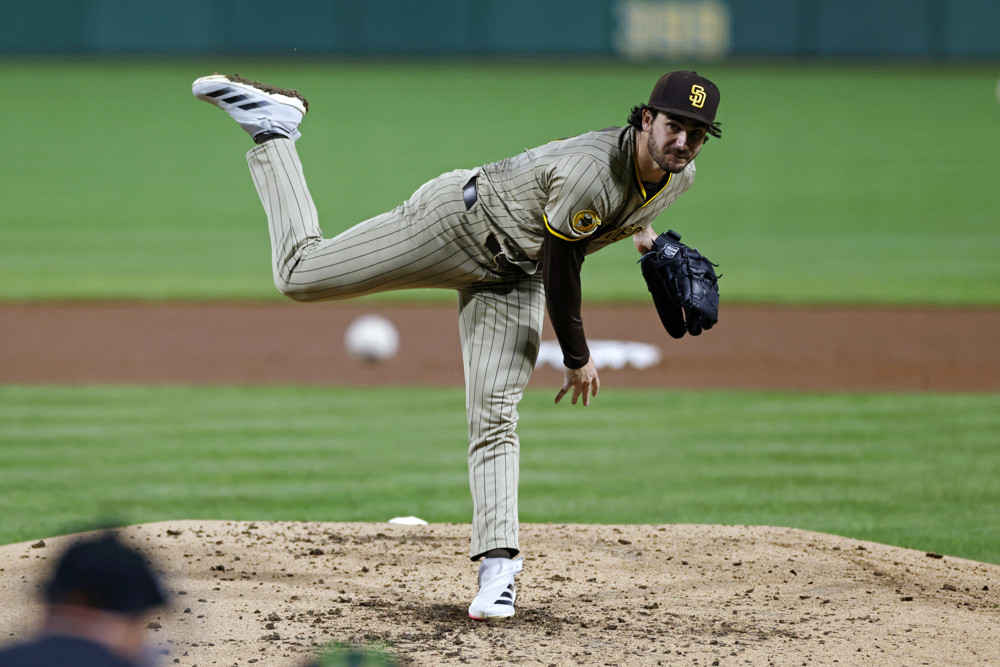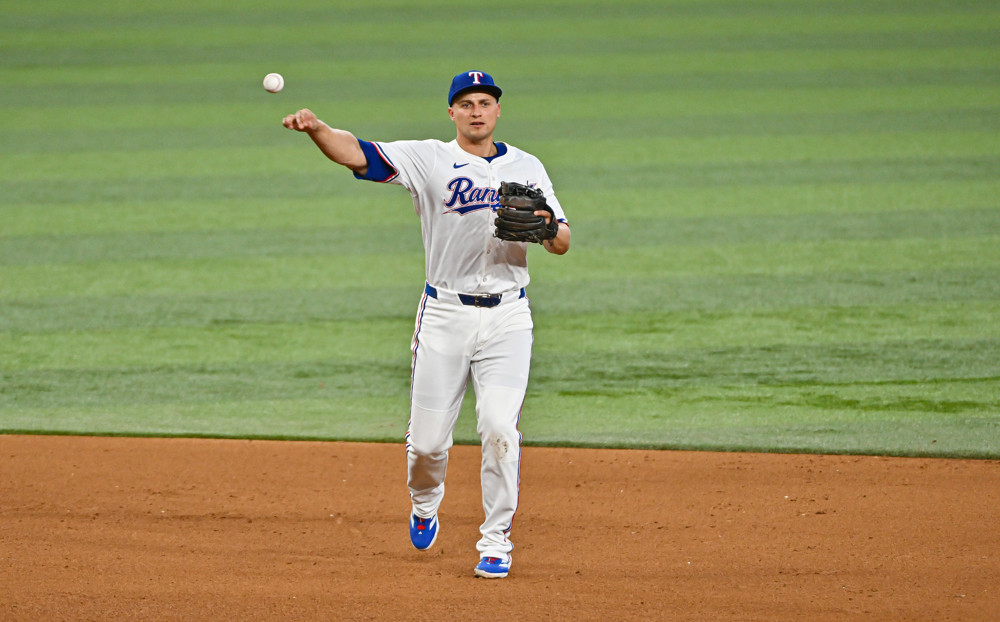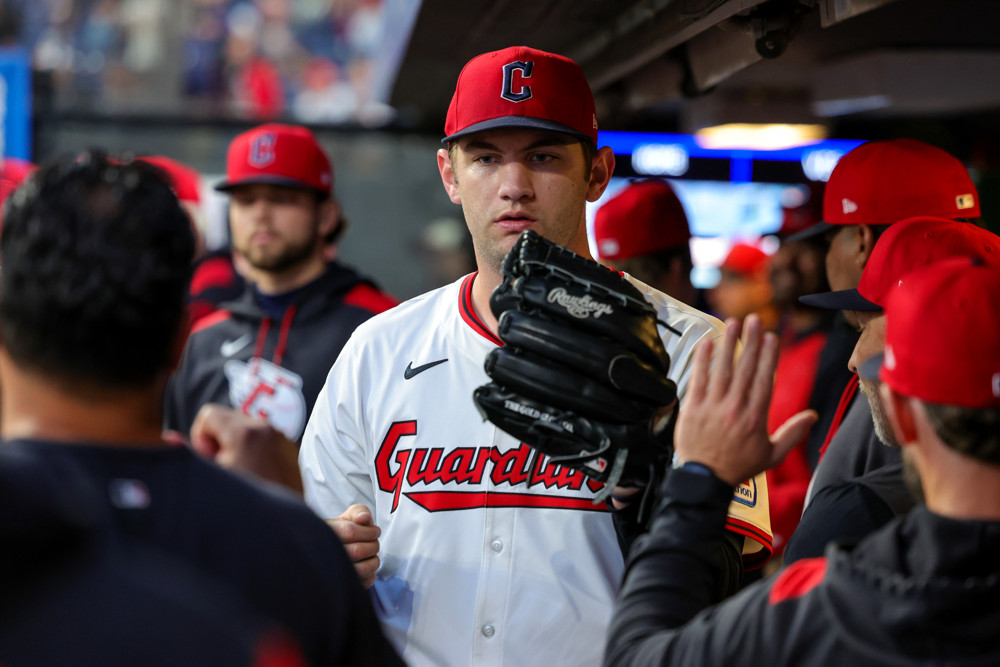Photo: Frank Jansky/Icon Sportswire
I like to tell people that Defensive Runs Saved is about more than isolating a batted ball, determining whether you got an out, and assessing how much value that batted ball had.
When the stat was invented in the mid-2000s, that component (turning batted balls into outs) was the dominant one. But John Dewan and Bill James were careful in adding other considerations both at the time of invention and in the future, such as value for turning double plays, both blocking and framing pitches, and how well an outfielder prevented runners from taking extra bases.
I bring this up because of the 22-15 Cleveland Guardians, whose defensive performance has been unusual.
I thought the Guardians would be one of baseball’s best defensive teams. But they haven’t exactly played like one yet. They rank 26th in how often they turn grounders and bunts into outs. They rank 24th in how often they turn balls hit in the air into outs (22nd on balls hit in the air into the outfield).
They rank 29th in the Range (and Infielder Throwing) component of Runs Saved, which is basically our equivalent of Outs Above Average (converted to a run value)
And yet, they’re not at the bottom in overall Runs Saved. They’re at the front of the middle of the pack, 11th overall.
So what the heck is going on here
The Guardians aren’t necessarily turning batted balls into outs at a high rate, but …
They’ve converted a few more double play chances into two outs than the average team. They have 2 Double Play Runs Saved. Twenty seven teams have 0, 1, or a negative number That helps a little bit.
They lead the majors with 13 outfield assists and have done well enough at deterring baserunner advancement to rank tied for 2nd with 4 Outfield Arm Runs Saved. That helps a little more.
They rank tied for 2nd in our pitch framing metric, Strike Zone Runs Saved, thanks to Bo Naylor and Austin Hedges.
They also rank tied for 2nd in Stolen Base Runs Saved. Hedges has thrown out 4 of 14 would-be basestealers and picked off two others. Gavin Williams, Logan Allen, and Tanner Bibee have all been good at holding baserunners. The Guardians catchers rank 3rd with 5 Runs Saved and that helps considerably.
Lastly, their defensive positioning has been good, which is something that gets credited to the Guardians as a team. The way Defensive Runs Saved works, you can even get credit for positioning when your players don’t make the play (idea being: you put them in a better position to make one, so you get rewarded). Between the infield and outfield, Cleveland ranks tied for 5th in positioning.
Most Runs Saved – Other Than From Range and Infielder Throwing
| Team | Runs Saved |
| Guardians | 23 |
| Mets | 22 |
| Cubs | 17 |
| Dodgers | 16 |
| Tigers | 15 |
Add all that up and it pushes a negative defensive performance to one that – as we said – is middle of the pack. The Guardians and Phillies, to use one example, are comparable in the Range component of Runs Saved. The Phillies are 4 runs better than the Guardians. But they diverge considerably because Cleveland does a lot of other things well. The Guardians are 33 Runs Saved better than the Phillies in other aspects of defense.
The Guardians are better than what they’ve shown, at least based on their history. Third baseman José Ramírez and shortstop Brayan Rocchio have Runs Saved numbers so far that are distant from their track record. If they ever get it going, the Guardians defense should be pretty good and they may just hang with the Tigers and Royals in the AL Central.



